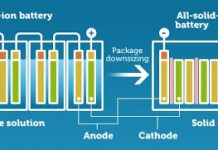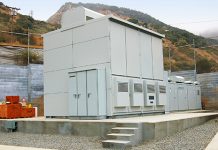John Petersen
Last week the American Chemical Society published a white paper in Environmental Science & Technology from a team of researchers at Tsinghua University, Beijing, and the Argonne National Laboratory Center for Transportation Research titled “Environmental Implication of Electric Vehicles in China.” This white paper concludes that:
- Implementing electric vehicles in China will increase national CO2, SO2 and NOX emissions; and
- Gasoline HEVs are more environmentally friendly, more commercially mature, and less cost-intensive.
The following graph comes from page 4 of the white paper and compares the relative fleet wide CO2 emissions for gasoline ICEs, gasoline HEVs and electric vehicles. It’s tremendously gratifying to see a high-level analysis that compares all of the available alternatives, instead of simply comparing ICEs with EVs.

While the graph focuses on CO2 emissions and shows that electric vehicles in China will be 50% dirtier than HEVs, the article also explains that EVs in China could double NOx emissions and increase SO2 emissions by 3–10 times. The bottom line is that in the U.S., China and India, PHEVs and EVs will be plugging into a lump of coal for decades to come and popular greenwash extravaganzas like the upcoming Tesla Motors IPO and the $7 to $11 billion Electric Drive Vehicle Deployment Act of 2010 that was introduced in Congress last week will ultimately be condemned for what they are, wholesale plunder of the treasury, the financial markets and the environment.
I have long argued that lithium-ion batteries are too valuable to waste on foolish applications like battery powered electric vehicles. I’ve even suggested that there won’t be a lithium-ion battery glut because the world needs all the advanced batteries it can produce for sensible applications like electric two-wheeled vehicles and HEVs. Insanity is the only word I can use to describe the suggestion that batteries will ever be a cost effective replacement for a fuel tank.
If we wanted to create a hierarchy of possible battery applications going from the highest value per watt-hour to the lowest value per watt-hour, our list would look something like this:

In a normal free market, production capacity is allocated first to high value applications and then to successively lower value applications. In cases where supply is constrained by resource availability, manufacturing capacity or a host of other reasons, high value applications that only need a little battery capacity will always be able to outbid lower value applications that need a lot of battery capacity. The end result is that electric vehicles will always end up at the bottom of the food chain and the only batteries available to them will be the dreck and surplus that nobody else needs or wants. The economics of electric vehicles may work for the eco-religious crowd who will pay any price for the right status symbol to express their world view, but it’s insanity to believe that electric vehicles have any future in the real world of paychecks and budget-conscious consumers.
I’m frequently critical of lithium-ion battery developers like A123 Systems (AONE), Ener1 (HEV) and Valence Technology (VLNC), but that criticism has nothing to do with the value of their products or the odds that they could develop a sensible business model for the commercialization of those products. The concept of electric vehicles, however, is inherently flawed and when good companies devote immense resources to the pursuit of foolhardy plans the result is invariably catastrophic for investors. Perhaps the latest study out of China will be enough to force some serious soul-searching before it’s too late. I have never seen a new business prosper by targeting the most price sensitive, capital intensive and competitive markets first.
Disclosure: Author has no interests in the companies mentioned for obvious reasons.









I don’t know, I just heard a sound bite from the President where he’s convinced now with the oil spill that alternative energy is the way to go.
He doesn’t have a clue but that won’t stop him or Congress from shooting from the hip on this one.
The lobbyist’s are not on Capital Hill to talk them out of it either!
John,
Do you think Tesla will hold off on their IPO until the bill passes?
Jock Stucki
Given their regulatory status, I expect the Tesla IPO to go within a couple weeks. I also won’t be the least bit surprised by any action government takes. That being said, government is terrible at creating consumer demand in the absence of regulatory compulsion and I don’t see consumer demand developing under any circumstances.